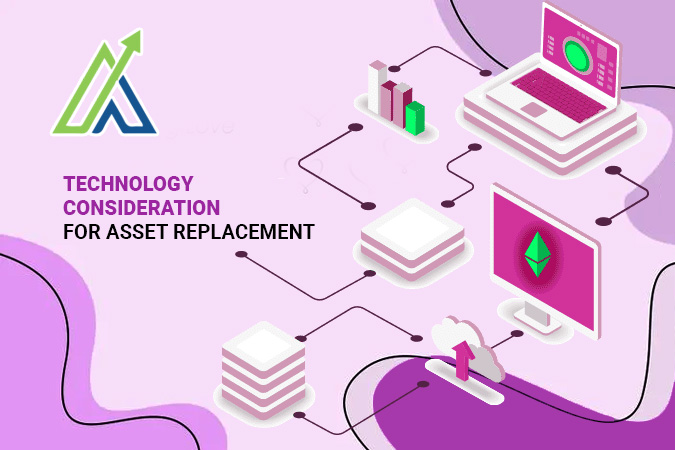In the fast-paced world of business, asset replacement is a big deal. Technology is shaking things up, bringing new ideas and boosting productivity, especially in India. Let’s dive into the tech side of asset replacement with examples.
Impact of Technologies for Asset Replacement
Here are the technological advancements that impact asset replacement: –
Internet of Things (IoT)
The Internet of Things (IoT) is changing the game in asset management. Imagine a factory where machines talk to each other, predicting maintenance needs and stopping breakdowns before they happen. Cool, right? Tata Steel uses IoT sensors to monitor their equipment, cutting downtime and saving money. With IoT, businesses can decide exactly when to replace assets, squeezing every bit of value out of them.
Cloud Computing
Cloud computing is a total game-changer. It lets businesses store and access data from anywhere, making asset management smooth and easy. Think of a retail chain with stores all over India. With cloud-based inventory management, they can track stock levels in real-time, restock on time, and reduce waste. Reliance Retail uses cloud solutions to keep their vast network running smoothly. Cloud tech means businesses can react faster and be more flexible, boosting productivity.
AI and Machine Learning
Artificial Intelligence (AI) and Machine Learning (ML) are not just buzzwords; they’re powerful tools for asset replacement. AI can sift through mountains of data to predict when an asset might fail, helping businesses plan replacements better. Mahindra & Mahindra uses AI to streamline their supply chain, predicting demand and ensuring the right assets are available. This proactive stance cuts down disruptions and amps up efficiency.
Robotics and Automation
Robotics and automation are changing asset management. Automated systems handle repetitive tasks precisely, letting humans focus on strategic work. In manufacturing, robots can assemble products faster and with fewer mistakes. Maruti Suzuki’s use of robotics in their factories shows this shift, with faster production and fewer errors. Investing in robotics can seriously boost productivity.
Blockchain
Blockchain technology offers massive potential for asset management with its transparent and secure ledger system. It ensures all transactions are recorded accurately, preventing fraud and building trust. In India, the diamond industry uses blockchain to track each diamond’s journey, ensuring authenticity. Integrating blockchain enhances the security and reliability of asset management.
Sustainable Technologies
Sustainability is no longer an option but rather a requirement in today’s business environment. It is financially prudent to fund green technology to replace assets because this is advantageous financially in the long run and has positive impacts on the natural environment. This is facilitated by the fact that an invention like the solar panel can substitute for traditional sources of energy, thereby reducing electricity bills. Infosys has successfully gone for solar power, which has improved the green areas of their campuses besides saving costs. The savings from the timely replacement of worn-out assets benefit the environment and the company’s’ financial position.
Mobile Technologies
Mobile technology has revolutionized asset management. With mobile apps, businesses can track and manage assets on the go. Imagine a delivery company using a mobile app to track its fleet in real-time, ensuring timely deliveries and efficient routes. Swiggy uses mobile tech to optimize delivery, enhancing customer satisfaction and efficiency. Mobile tech’s convenience and accessibility make it crucial in asset management.
Conclusion
In India’s fast-moving economy, tech-driven asset replacement is key for innovation and productivity. From IoT and AI to blockchain and green tech, businesses have a toolkit for enhancing operations and gaining a competitive edge. These technologies are evolving fast, making asset management even smoother and more efficient. Whether you’re a student planning your future or a Chartered Accountant dealing with asset management, get ready to dive into these tech trends and stay ahead of the game. Are you ready to embrace these innovations and lead the charge in transforming your business operations?

